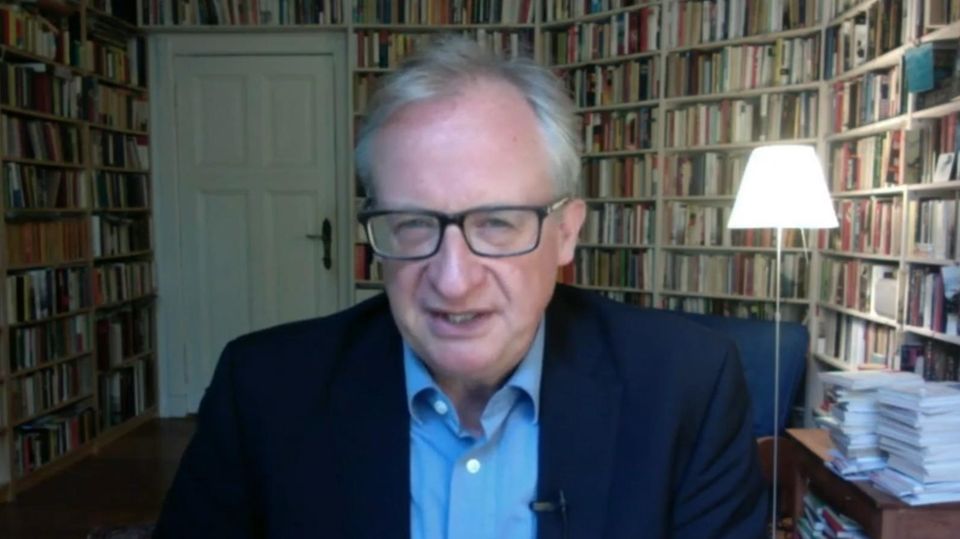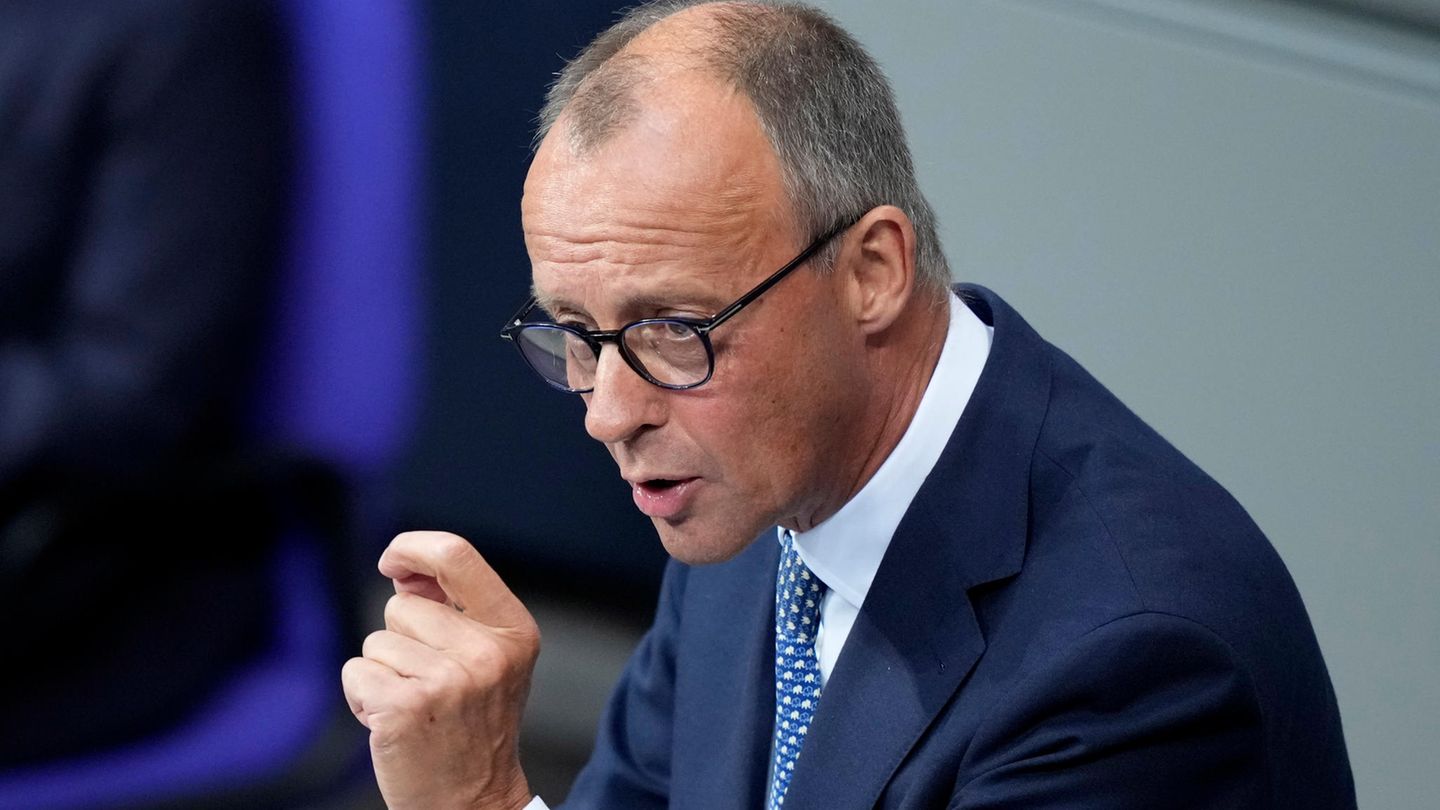On site
Election campaign feeling in the Bundestag: In the general debate, Olaf Scholz and Friedrich Merz criticize each other. Three key lessons.
1. More emotion, less content, Mr Scholz
Wow, he can do that too: The traffic light rows cheer with enthusiasm when Olaf Scholz puts his manuscript aside and addresses the opposition leader from the bottom of his heart, so to speak. Scholz’s central punchline: “You are the type of politician who thinks that you have solved the migration issue with an interview in ‘Bild am Sonntag’.” That hits home.
The asylum deal between the traffic light coalition and the opposition had collapsed the day before, the Union declared the government’s proposals inadequate and the joint talks had subsequently failed. An exit according to a “script”, criticised the Chancellor, Merz and the Union had run for the bushes. We’ll do it, you just moan – that is the message.

Political scientist: “Merz’s approach plays into AfD’s hands”
03:44 min
In these moments, the Chancellor appears clear, combative, and offensive: just as his SPD wants him to be and rarely hears him, at least in public. It is the strongest part of his speech. The passage in which Scholz conscientiously lists everything the traffic light coalition has achieved, on the other hand, does not shake anyone from their blue seats. Modernization, transformation, economic initiative: yawn. The traffic light coalition wants an attack from the Chancellor.
2. The Union wants to humiliate Olaf Scholz, but makes a strategic error
Well, this little trick backfired. Traditionally, the largest opposition party opens the general debate, then the head of government reacts. Instead of Merz, however, it is surprisingly Alexander Dobrindt, the head of the CSU regional group, who stands at the lectern to give the Chancellor a hard time: his government has zero economic growth and zero percent approval – instead of a “double oomph”, Dobrindt sees only a “double zero”.
The Union clearly wanted to take Scholz by surprise, throw him off track – and put him through the wringer twice. The change in the order of speakers allowed Merz to react to the Chancellor’s appearance. But only after an hour and a half. A tactical error.
The AfD, Greens and FDP can make their points in front of the Union parliamentary group leader. Merz is tough on the Chancellor, rejects his “script” accusation as “infamous”, and leaves no stone unturned in his criticism of what he sees as inadequate migration and poor economic policies of the traffic light coalition. But by the time he gets to his speech, which is of a rather quiet nature anyway, attention has long since waned.
3. The traffic lights move together (to the right)
Budget week, was there something? The focus of the general debate is actually on migration, almost every speech begins with this topic. FDP parliamentary group leader Christian Dürr even admits this openly: this is not a normal budget debate.
This is hardly surprising. The traffic light coalition now wants to show that it is capable of taking action in this area, to prove that the country is not slipping away from it, as the opposition accuses it of. After the murderous knife attack in Solingen and under the impression of the botched state elections in East Germany, the traffic light coalition has rushed through a series of tightening measures in asylum and migration policy. This is where the real surprise lies.
Firstly, the traffic light coalition can do this if it wants to – it is coming together. After the failed asylum deal with the opposition, but also in the general debate. Joint action is now required, is the unanimous statement from the otherwise rather diverse coalition.
And secondly: it is moving to the right. All the traffic light parties stress that regular migration is necessary, that Germany’s cosmopolitanism is non-negotiable and that xenophobia must have no place. But when the SPD, FDP and even the Greens focus on “effective” rejections at the borders, it is also clear who is being deprived of protest potential: the AfD. Much of what the traffic light coalition is now doing would have been unthinkable just a few months ago.
Source: Stern
I have been working in the news industry for over 6 years, first as a reporter and now as an editor. I have covered politics extensively, and my work has appeared in major newspapers and online news outlets around the world. In addition to my writing, I also contribute regularly to 24 Hours World.




